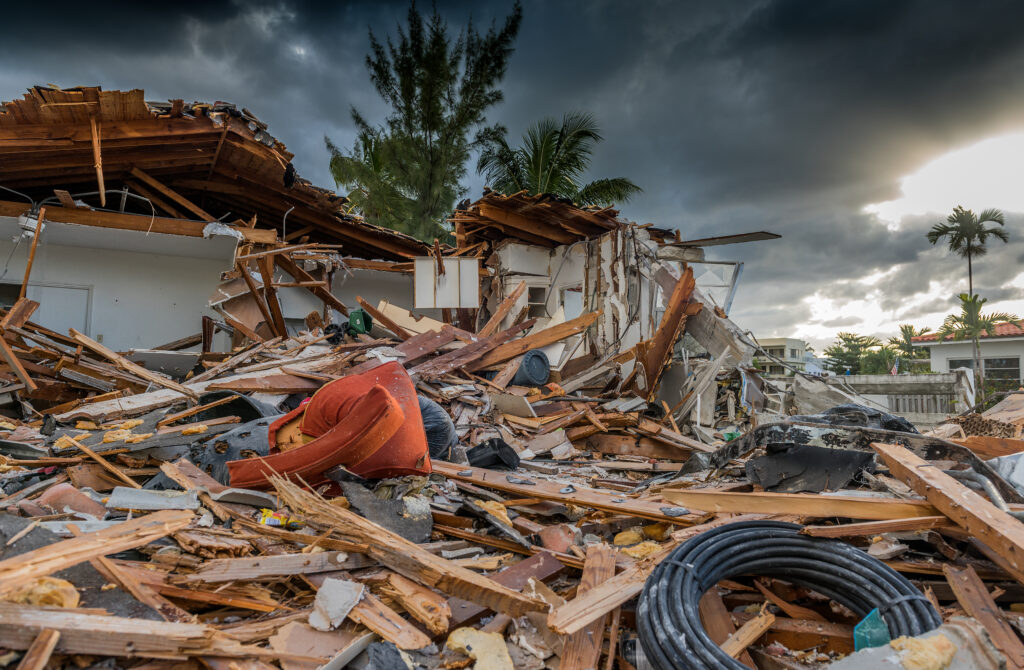Natural Disasters Can Affect Your Financial Statement, Too
Jun 23, 2024
The economic repercussions of natural disasters can echo for business owners across extended periods, spanning months, years, or even multiple decades. Companies are expected to follow regulatory guidelines in all circumstances, including — and especially — in the aftermath of a natural disaster. Although the expectations are plainly written into the guidance, many companies are unfamiliar with the key points. Four of these key elements are discussed below.
Recording Losses
U.S. Generally Accepted Accounting Principles (GAAP) require you to record your losses from a natural disaster separately from any insurance proceeds you receive to pay for those losses. Any costs you incur as a result of the disaster, like cleanup costs, property damage, and inventory replacement costs, should be recorded in the fiscal year the disaster occurred.
GAAP may require you to record your losses separately from your everyday operations on both the face of the financials and in the disclosures. If an event is both (1) unusual in nature and (2) infrequent in occurrence, you must segregate disaster losses from your ordinary operations and then disclose earnings-per-share data for that extraordinary event on its own.
Determining Asset Impairments
A severe weather event may damage your property or equipment. Long-lived assets like warehouse equipment, vehicles, and buildings may need to be evaluated for recoverability — in other words, they may need to be revalued. If your assets have decreased in market value, or if they can no longer be used at the same capacity as before, you will need to calculate their value impairments and write down your asset values accordingly.
Fixed assets are not the only assets that should be tested for recoverability. Receivables may also be at risk. Even if your business escaped damage, your clients may not have been as lucky. They may no longer be in a position to pay you. In that case, you will need to reassess your reserves balance and write down your receivables balance if collectability is unlikely.
Your goodwill and other intangibles (like copyrights or patents) may also need a second look. Calculating impairments for these intangibles can be a complex task. If you find yourself in need of assistance, it's crucial to reach out to a competent professional who can guide you through the process.
Calculating Future Liabilities
Natural disasters can cause gas leaks, oil spills, and other environmental catastrophes that will require remediation. If your business is on the hook for these costs, you should recognize the liabilities on your books if (1) litigation has commenced, and (2) it is probable that you will be held financially responsible for those environmental damages.
In addition to environmental liabilities, you may need to record lease liabilities if a leased asset is no longer in working order. The new lease accounting standard will affect how organizations record lease impairments, so talk to your CPA if you lease or sublease assets that may be damaged during a natural disaster.
Reporting Insurance Proceeds
Insurance proceeds from natural disasters are also known as “cost recoveries,” and they will be recorded on the financials separately from the associated losses. Once you file a claim, you should record your claim as a receivable, which will then be reversed from the balance sheet once you receive the cash. If there is a dispute with your claim or you are currently in negotiations with your insurance provider, do not record the receivable; only record the receivable when you are likely to collect the proceeds.
Although you may receive one lump sum of cash from your insurance company, you must assign those receipts appropriately on the cash flow statement. For example, if a third of your payout is earmarked for inventory and the remainder for fixed assets, a third of your proceeds should be recorded as “operating” activities on the cash flow statement, and the remainder as “investing” activities.
Being adequately prepared for a natural disaster is crucial. To ensure you are ready when a natural disaster strikes, reach out to your CRI CPA. With our expertise, we can guide you through the steps necessary to brace for the worst-case scenarios, thereby safeguarding your business from potentially severe repercussions.

































































































































































































































































































































































































































































































































